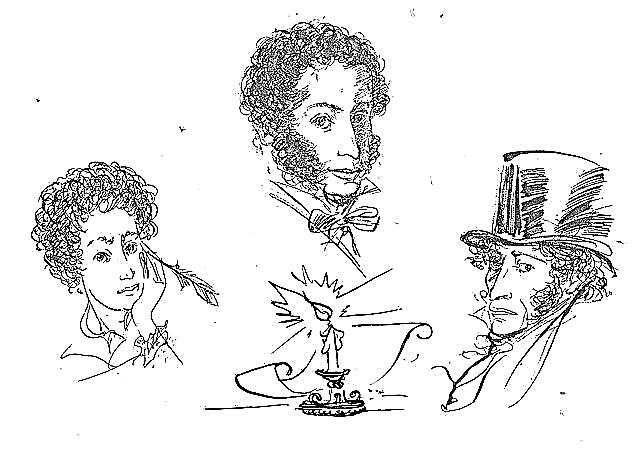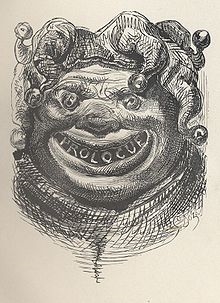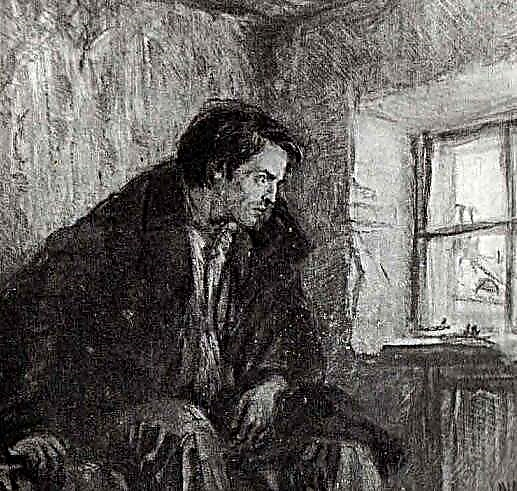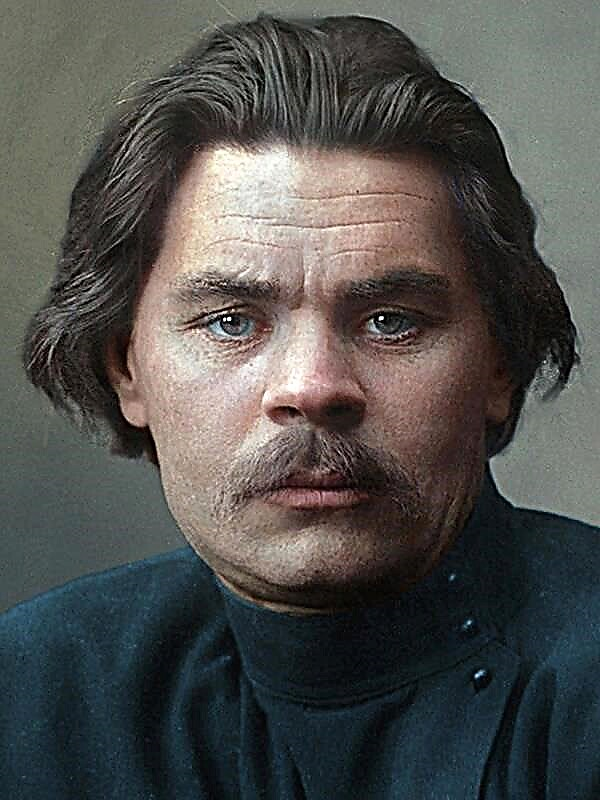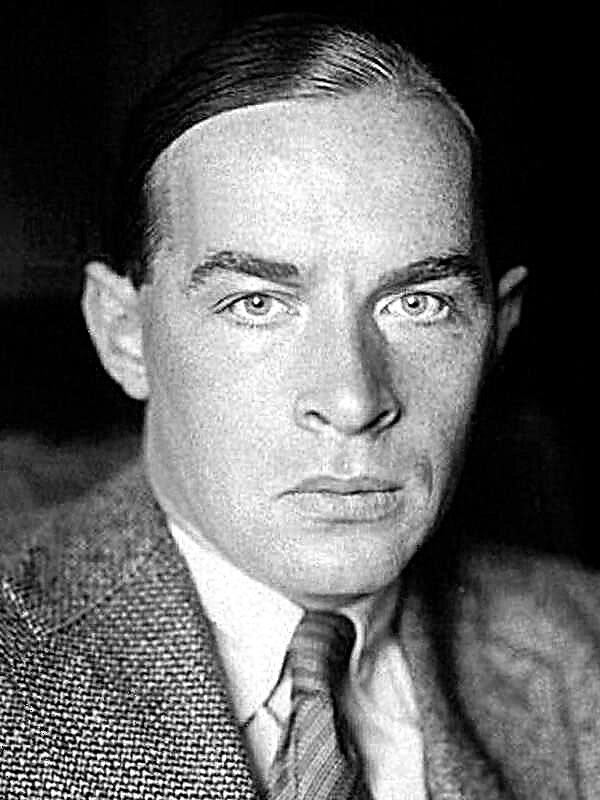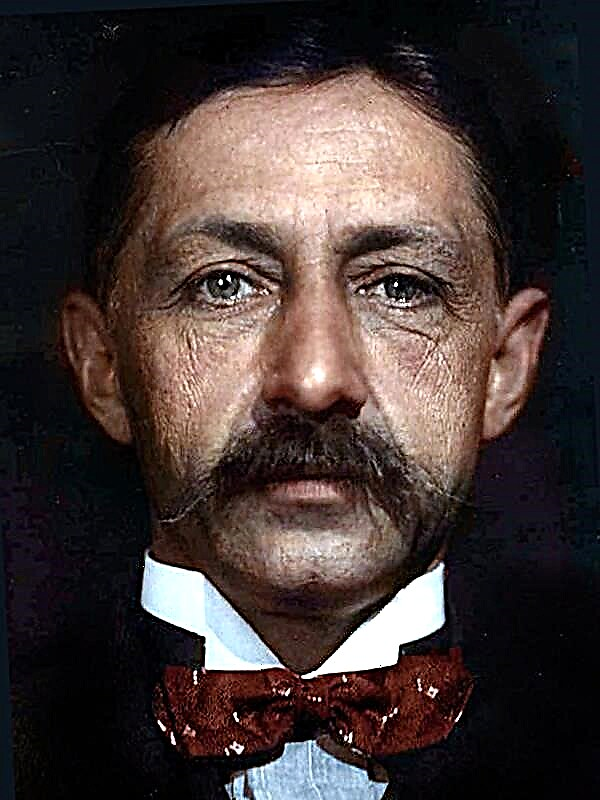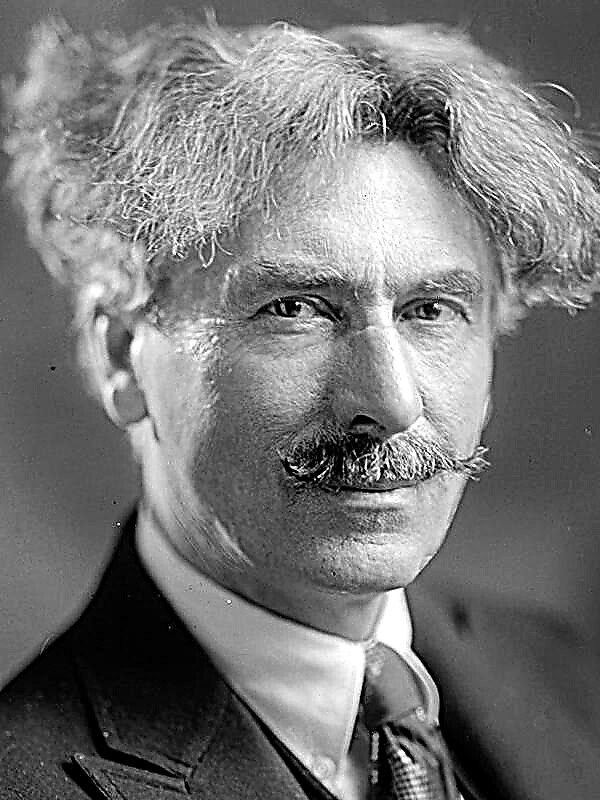Longing for strong and severe passions that he did not find in the reality surrounding him, Flaubert turned to a deep history. He settled his heroes in the III century. BC. and chose a real episode - when the famous Carthaginian commander Hamilcar Barka with unprecedented cruelty crushed the rebellion of mercenary troops.
It began with the fact that the Council of Carthage, ravaged by the Punic War, was unable to pay salaries to hired soldiers on time and tried to belittle their anger with plentiful treats. Gardens surrounding the luxurious Hamilcar Palace became the place of the feast. Haggard, tired warriors, many of whom were injured or mutilated, flocked to the place of the feast. These were “people of different nations - ligurs, Lusitans, Balears, Negroes and fugitives from Rome ... Greek could be distinguished by a thin camp, an Egyptian by high stooped shoulders, a cantabra by thick calves ...". The calculation of the Council was incorrect. Under the influence of wine vapors, the anger of deceived warriors, with the help of which Hamilkar won victories in his recent campaigns, only intensified. They demanded more and more - meat, wine, gold, women,
Suddenly from the Carthaginian prison came the mournful singing of the slaves imprisoned there. The feasts left the food and rushed to free the prisoners. They returned, screaming in front of a man of twenty slaves clattering chains. The revelry resumed with renewed vigor. Someone noticed a lake in which fish decorated with precious stones swam. In the family of Barki, these fish were revered as sacred. The barbarians laughed them out, started a fire and began to watch cheerfully how strange creatures meandered in boiling water.
At that moment, the upper terrace of the palace lit up and a female figure appeared in the doorway. "Her hair, showered with purple powder, according to the tradition of the maidens of Canaan, was laid like a tower ... many stones sparkled on her chest ... her hands covered with precious stones were bare to her shoulders ... Her pupils seemed to be directed far beyond the earthly limits" .
It was the daughter of Hamilcar Barki - Salambo. She was brought up far from human gaze, in the company of eunuchs and maidservants, in extraordinary severity and sophistication and in constant prayers glorifying the goddess Tanit, whom Carthage worshiped. The goddess was considered the soul of Carthage and the guarantee of his power.
Now Salambo called her favorite fish, lamenting and reproaching the barbarians for sacrilege. She spoke a variety of languages, speaking to everyone in his dialect. Everyone listened carefully to the beautiful girl. But no one looked at her as closely as the young Numidian leader Nar Gavas. He was not a mercenary and was at a feast by accident. He had been living in the palace of Hamilcar for six months, but he first saw Salambo and was amazed at her beauty.
On the other side of the table is a huge Libyan named Mato. He, too, was captivated by the appearance of Salambo. When the girl finished her speech, Mato bowed admiringly to her. In response, Salambo handed him a cup of wine as a sign of reconciliation with the army. One of the soldiers, the gall, noticed that in their area a woman serves wine to a man when she offers to share a bed with her. He did not have time to finish the sentences when Nar Gavas drew a dart and threw it at Mato, hitting it in his hand. The Libyan jumped in a rage, but Havas managed to hide in the palace. Mato rushed after him - upstairs, to the red door, which slammed behind the opponent. But outside the door was one of the freed slaves - Spendius. He began to tell Mato that he had lived in the palace before, knew his caches and, as a reward for freedom, was ready to show Mato where fabulous treasures were stored. But all Mato’s thoughts were now occupied by Salambo.
Two days later, they announced to the mercenaries that if they left the city, they would be fully paid the promised salary and the Carthaginian galleys would take everyone home. The barbarians lost. Seven days in the desert, they reached the place where they were told to set up camp. Once in this camp appeared Nar Gavas. Mato at first wanted to kill him for a trick at the banquet. But Nar Gavas referred to intoxication, sent Mato rich gifts and as a result remained to live among mercenaries. Only Spendius immediately realized that this man was plotting a betrayal. However, whom does he want to betray - barbarians or Carthage? Ultimately, Spendius was indifferent, because "he hoped to benefit from all sorts of troubles."
Mato was in deep sorrow. Often he lay on the sand and did not move until the evening. He admitted to Spandy inseparable that he was haunted by the image of Hamilcar's daughter. He turned to the magi, swallowed ash, mountain dill and the poison of vipers on their advice, but in vain. His passion only grew.
Everyone was waiting for the promised gold to arrive from Carthage. In the camp, meanwhile, everyone was arriving. Here were hordes of debtors who fled from Carthage, devastated peasants, outcasts, criminals. The tension grew, but there was still no salary. Once an important procession arrived, led by the old commander Gannon. He began to tell people, driven to gloomy despair, how bad things were in Carthage and how scarce his treasury was. Before the eyes of the emaciated crowd during his speech, he continually feasted on expensive dishes taken with him. All this caused a murmur and finally an explosion. The barbarians decided to move to Carthage. For three days they made the return trip and besieged the city. A bloody struggle began.
Mato was the leader of the Libyan detachment. He was revered for strength and courage. In addition, he "inspired some mystical fear: they thought that at night he speaks with a ghost." Once Spendius suggested that Mato be brought to Carthage - secretly, through water pipes. When they entered the besieged city, Spendius persuaded Mato to kidnap her blanket from the temple of the goddess Tanit, a symbol of power. With an effort on himself, Mato agreed to this daring step. He left the temple, wrapped in a divine veil, and headed straight to the palace of Hamilcar, and there he made his way into the room of Salambo. The girl was sleeping, but when she felt Mato’s gaze, she opened her eyes. The Libyan hastily began to tell her about his love. He offered Salambo to go with him or agreed to stay on his own, subject to any fate. He was ready to return to her the stolen blanket of the goddess. Shocked Salambo began to call for help. But when the running slaves wanted to rush to Mato, she stopped them: “The goddess covered him!” Mato left the palace without hindrance and left the city. The inhabitants who saw the Libyan were afraid to touch him: "... the veil was part of the deity, and touching him threatened with death."
The ongoing battles of the barbarians with Carthage were extremely difficult. Success tended to one side or the other, and not one was inferior to the other in military force, cruelty and treachery. Spendius and Nar Havas lost heart, but Mato was stubborn and courageous. In Carthage, it was believed that the cause of all the misfortunes was the loss of the goddess. Salambo was accused of what happened.
The teacher of Salambo, the priest, directly told the girl that the salvation of the republic depends on her. He convinced her to go to the barbarians and take Tanith's coverlet back. Perhaps, he continued, this threatens the girl with death, but, according to the priest, the salvation of Carthage is worth one female life. Salambo agreed to this sacrifice and hit the road with a guide.
They cautiously and long reached the barbarian positions. Sentinel Salambo said she is a deserter from Carthage and wants to speak with Mato. "... Her face was hidden under a yellow veil with yellow stains, and she was so wrapped in many clothes that it was not possible to see her ..." Mato appeared, she asked to take her to her tent. The Libyan's heart was beating, the domineering appearance of the stranger embarrassed him. His tent was at the very end of the camp, three hundred paces from the trenches of Hamilkar.
In the tent, Mato Salambo saw the goddess's precious veil. The girl felt that she was supported by the powers of the gods. She decisively tore off her veil and announced that she wanted to take Tanit's cover back. Mato looked at Salambo, forgetting about everything in the world. And she angrily threw him in the face: “From everywhere they go news about the devastated cities, about the burned villages, about the killing of soldiers! You ruined them! I hate you!" She remembered Mato bursting into her bedroom: “I didn’t understand your speeches, but I saw clearly that you were leading me to something terrible, to the bottom of the abyss.” “Oh no,” exclaimed Mato, “I wanted to give you a coverlet.” After all, you are beautiful, like Tanit! Unless you are Tanit herself! .. ”
He knelt down before her, kissed her shoulders, legs, long braids ... Salambo was struck by his strength. Some strange languor took possession of her. "Something gentle and at the same time domineering, which seemed to be the will of the gods, forced her to surrender to this languor." At that moment, a fire started in the camp, it was arranged by Nar Gavas. Mato jumped out of the tent, and when he returned, he no longer found Salambo. She slipped across the front line and soon found herself in the tent of her own father. He asked her nothing. Moreover, he was not alone. Nearby was Nar Havas, who crossed with his cavalry to the side of the Carthaginians. This betrayal determined the outcome of the battle and the confrontation as a whole, greatly weakening the ranks of the mercenaries. The Numidian prostrated himself before Barka as a sign that he was giving himself up as a slave to him, but he also recalled his merits. He assured that he was in the ranks of the barbarians to help Carthage. In fact, Nar Havas was guided only by the side on which the advantage was. Now he realized that the final victory would go to Hamilcar, and went over to his side. In addition, he was angry with Mato for his advantage as a military leader and for his love of Salambo.
The astute Hamilkar did not begin to accuse Nar Havas of lying, since he also saw the benefits of an alliance with this man. When Salambo entered the tent and, stretching out her arms, unfolded the cover of the goddess, the excited Hamilkar in a fit of emotion announced: “As a reward for the services you rendered to me, I will give you my daughter, Nar Gavas.” Immediately there was a betrothal. According to custom, the thumbs were tied together with a bull leather belt, and then they began to sprinkle grain on their heads. Salambo stood calmly, like a statue, as if not understanding what was happening.
The war, meanwhile, continued. And although the republic now had the Tanith blanket, the barbarians again besieged Carthage. Spendius managed to destroy the city's water supply system. A plague epidemic began in the city. The elders, in desperation, decided to sacrifice to Moloch by killing children from wealthy families. They came for ten-year-old Hannibal - the son of Bark. Crazed with fear for his son, Hamilkar hid Hannibal, and for him gave him a similar boy from slaves. Having played the scene of his father’s grief, he gave a little slave to the spell. (In this case, Hannibal is a real historical person, the future famous commander).
Immediately after the sacrifice, it began to rain, and this saved the Carthaginians. Nar Havas managed to smuggle flour into the city. Rome and Syracuse bowed to the side of the republic, afraid of the triumph of mercenaries.
The rebels suffered a crushing defeat. A terrible famine began in their ranks and there were even cases of cannibalism. Killed Spendius, who was never able to rise as a result of the turmoil. Mato was captured, although his unit resisted to the last. Nar Havas managed to sneak up behind him and throw a net on the Libyan man. The execution of the indomitable warrior was scheduled for the same day as the wedding of Salammbo. Before his death, Mato was subjected to sophisticated torture. He was led through the whole city blindfolded so that every resident could strike. It was forbidden only to gouge out eyes and beat in the heart in order to prolong the torture as long as possible.
When Salambo, sitting on the open terrace of the palace in a dazzling wedding dress, saw Mato, he was a continuous bloody mass. Only his eyes still lived and were inseparably looking at the girl. And she suddenly realized how much he suffered because of her. She remembered how he was in the tent, how she whispered words of love to her. Tortured, he fell dead. And at that very moment, Nar Havas, drunk with pride, stood up, embraced Salambo and in the sight of the jubilant city he drank from the golden cup - for Carthage. Salambo also rose with a bowl in her hand. But then she sank down, throwing her head back on the back of the throne. She was dead. “So the daughter of Hamilkar died in punishment for touching Tanit’s bedspread.”



